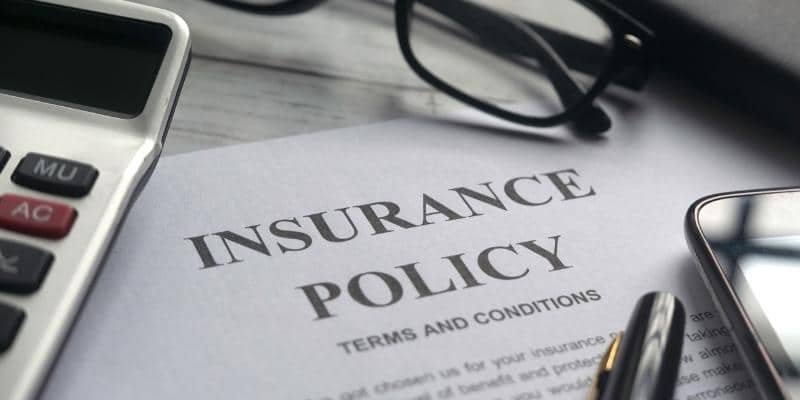
Introduction
In a world full of uncertainties, insurance stands out as a beacon of financial security. Many individuals, however, fall into the trap of avoiding insurance, either due to misconceptions or a belief that it’s an unnecessary expense. This article aims to unravel the layers of this decision and shed light on the significant cost one incurs by neglecting insurance.
Understanding Insurance
Insurance, at its core, is a financial arrangement that provides protection against unforeseen losses. It serves as a safety net, mitigating the financial impact of unexpected events.
Types of Insurance
From health and property to life and business, insurance comes in various forms, tailored to meet specific needs. Understanding these types is crucial for making informed decisions.
The Cost of Avoiding Insurance
The most apparent cost of avoiding insurance is the financial burden that comes with unexpected events. Whether it’s a medical emergency, a car accident, or damage to property, the absence of insurance can lead to substantial out-of-pocket expenses.
Legal Implications
In many cases, insurance is not just a choice but a legal requirement. Neglecting mandatory insurance, such as auto insurance, can result in legal consequences, including fines and license suspension.
Risks Without Insurance
Without health insurance, individuals might hesitate to seek medical attention, leading to more severe health issues in the long run. The cost of treating preventable illnesses can far surpass the expense of insurance premiums.
Property Risks
Homeowners or renters without property insurance face the risk of losing everything in the event of a natural disaster, burglary, or fire. The emotional and financial toll can be devastating.
Business Risks
For businesses, the cost of avoiding insurance extends to potential lawsuits, property damage, and loss of income due to unforeseen circumstances. This can cripple even the most robust enterprises.
Case Studies
To drive home the point, let’s explore real-life examples where individuals or businesses suffered immense losses due to the absence of insurance coverage.
Overcoming Insurance Hesitations
Common concerns like high premiums, complex policies, and uncertainty about returns can be addressed through education and transparent communication from insurance providers.
Finding Affordable Options
Contrary to popular belief, affordable insurance options exist. Through careful research and comparison, individuals can find policies that suit their needs and budget.
Benefits of Having Insurance
Insurance provides a financial safety net, ensuring that individuals and businesses can recover and rebuild after unexpected setbacks.
Peace of Mind
The intangible benefit of peace of mind cannot be overstated. Knowing that you are protected against life’s uncertainties allows for a more relaxed and fulfilling life.
How to Choose the Right Insurance
Thorough research and comparison of insurance policies are crucial. Understanding the terms, coverage, and reputation of insurance providers is essential for making an informed decision.
Consulting Professionals
Insurance agents and financial advisors can provide valuable insights and guide individuals toward the most suitable insurance options for their specific needs.
Insurance as an Investment
Some insurance policies, like life insurance and certain investment-linked plans, offer long-term benefits, serving as a form of financial investment.
Building Wealth
Smartly chosen insurance plans can contribute to wealth-building strategies, providing a dual benefit of protection and financial growth.
Insurance Industry Trends
The insurance industry is evolving with technological advancements, making processes more efficient and accessible for consumers.
Evolving Policies
Insurance policies are adapting to the changing landscape of risks. Staying informed about new policy options can help individuals stay ahead of potential threats.
Tips for Managing Insurance Costs
Insurance providers often offer discounts for bundling multiple policies. Exploring these options can help manage overall insurance costs.
Regular Reviews
Periodically reviewing insurance policies ensures that coverage aligns with current needs. Adjusting policies as circumstances change is a proactive approach to managing costs.
Common Myths About Insurance
Dispelling common myths can help individuals make more informed decisions about their insurance needs.
Understanding Policy Terms
Reading the fine print of insurance policies is crucial. Understanding terms and conditions prevents surprises during claims and ensures that coverage meets expectations.
The Social Responsibility of Having Insurance
Insurance is not just a personal choice; it also has a broader impact on communities. Being insured contributes to the overall resilience and well-being of society.
Conclusion
In conclusion, the cost of avoiding insurance goes beyond mere financial implications. It involves jeopardizing health, property, and business stability. Embracing insurance is an investment in peace of mind and long-term security. It’s time to reevaluate the choices and prioritize protection against life’s uncertainties.
FAQs
Is insurance really necessary?
Yes, insurance is crucial for protecting against unforeseen events that can have significant financial and personal consequences.
How can I find affordable insurance options?
Research and compare different insurance providers, and don’t hesitate to consult with professionals who can guide you to affordable options.
Are there any alternatives to traditional insurance?
While there are alternative risk management strategies, insurance remains the most reliable and widely used method for financial protection.
What happens if I don’t have insurance?
Without insurance, you risk substantial financial burdens, legal consequences, and potential loss of health, property, or business assets.
How often should I review my insurance policies?
It’s advisable to review your insurance policies annually or whenever there are significant life changes to ensure they align with your current needs.




